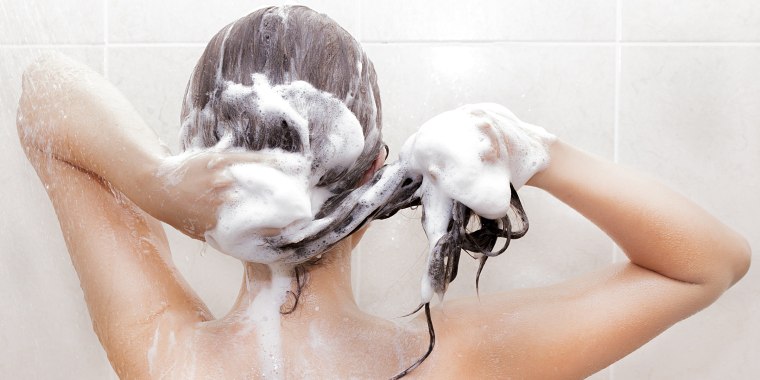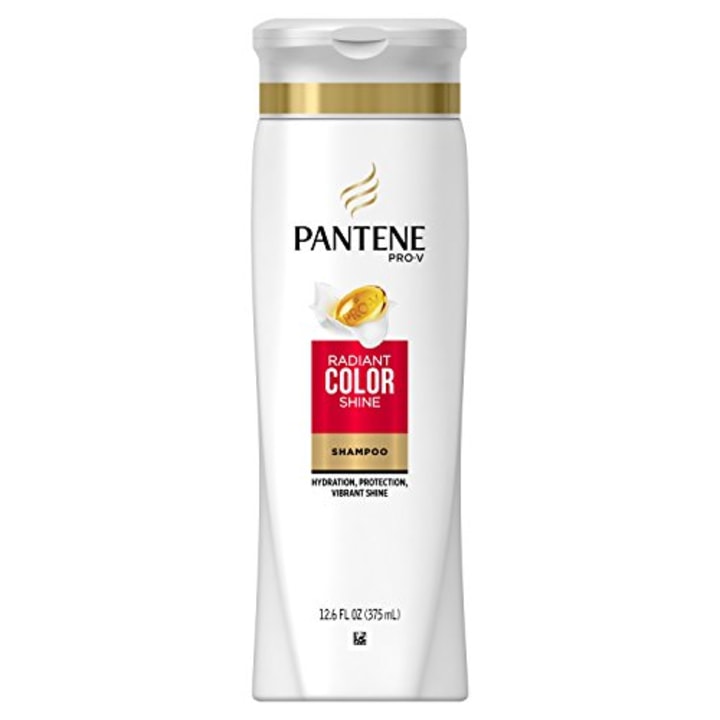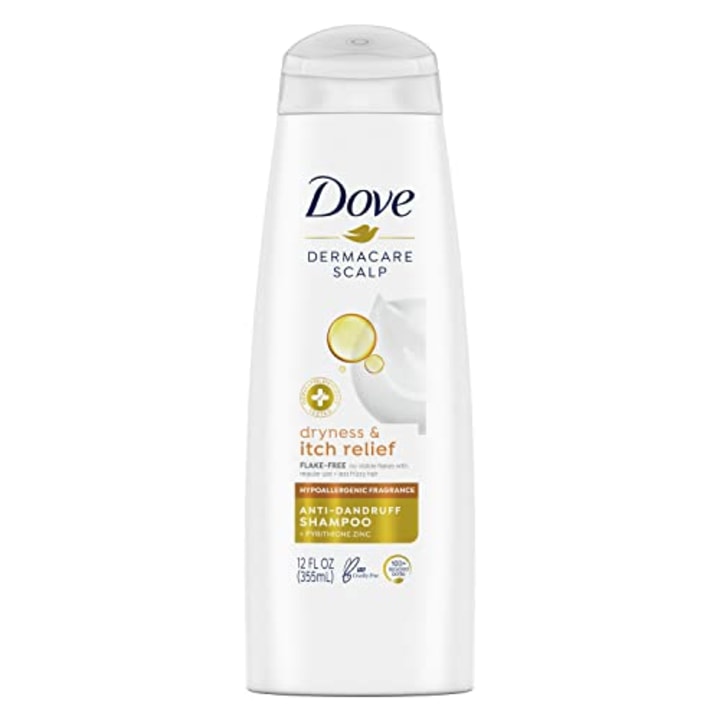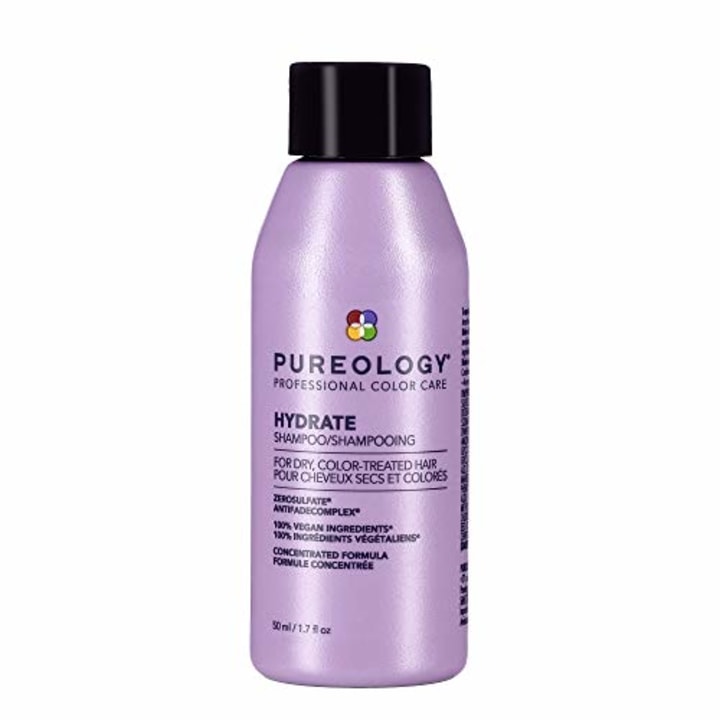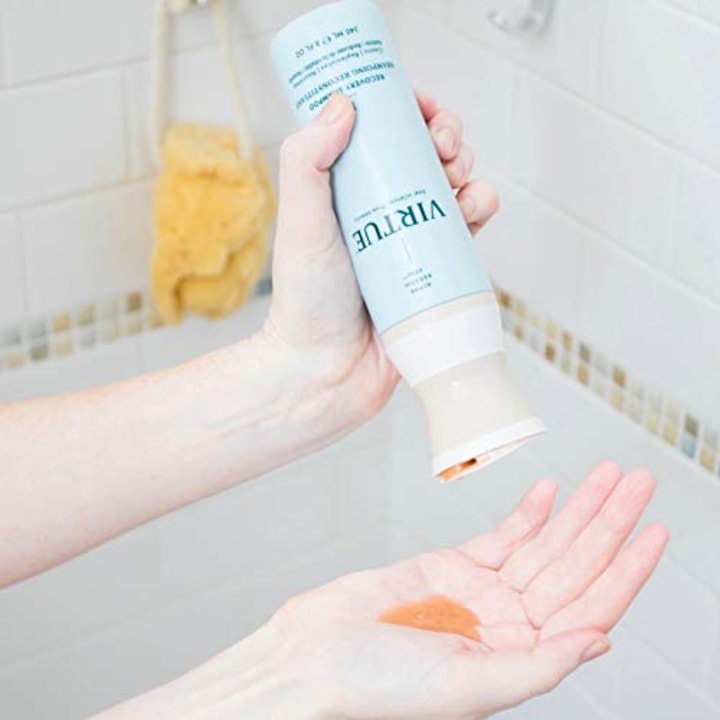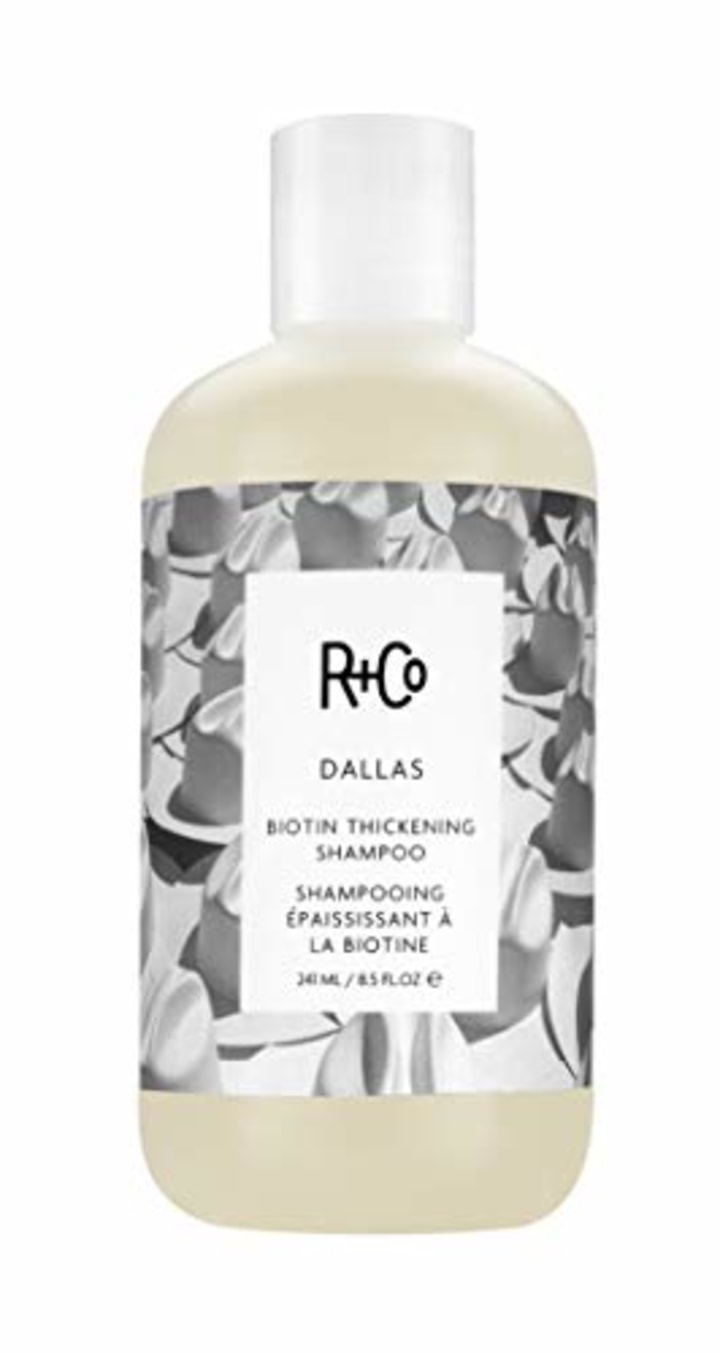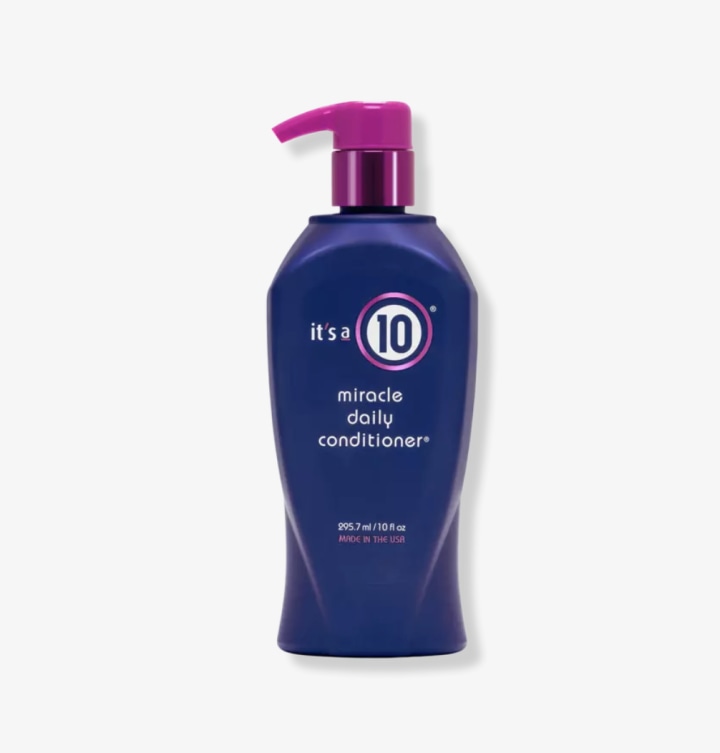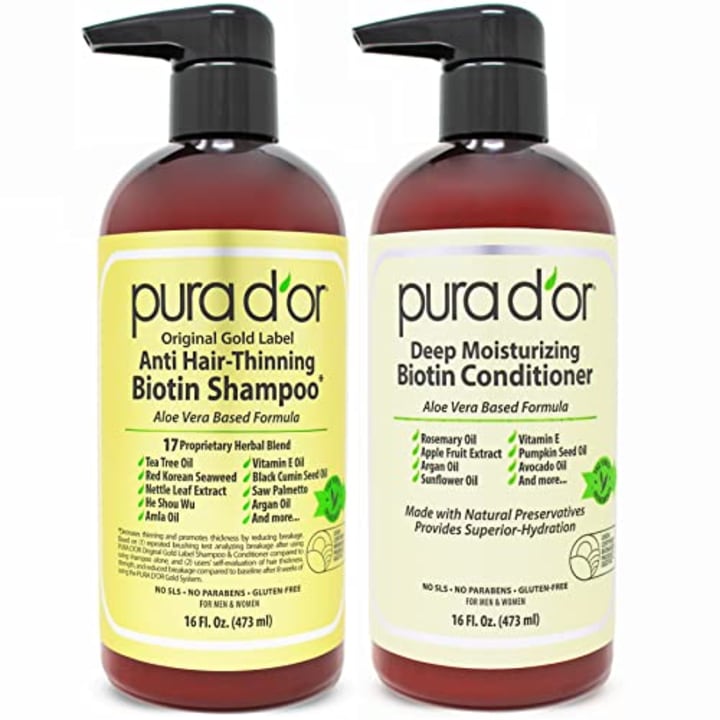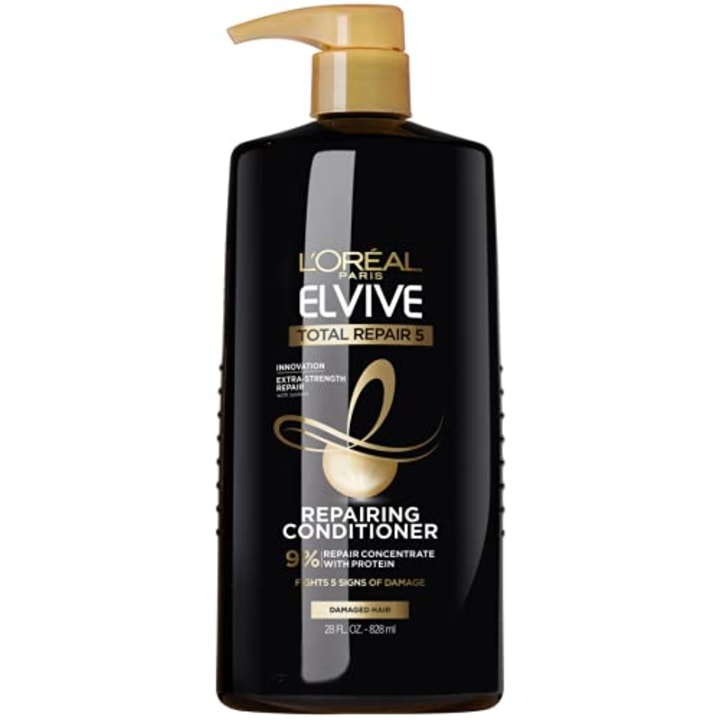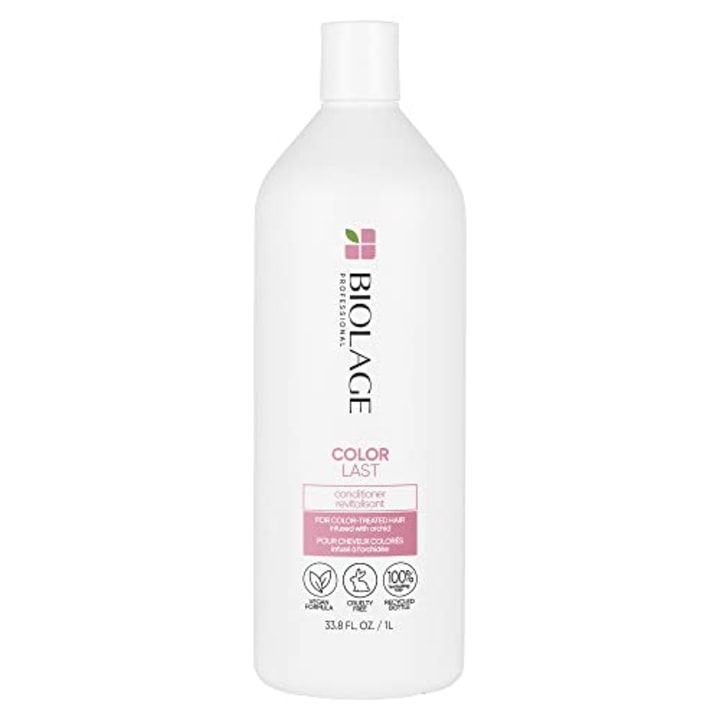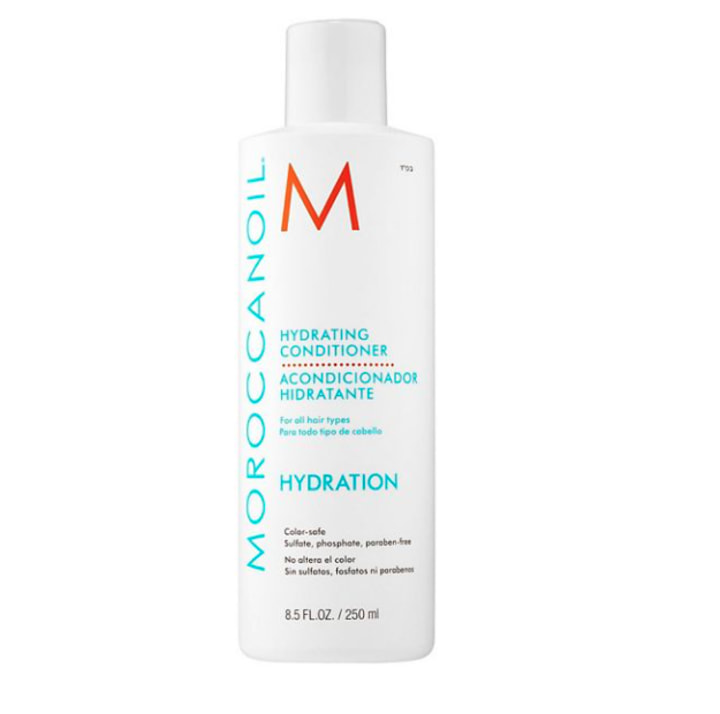For such a simple act, washing your hair sure can be confusing. Between figuring out how often to wash and keeping track of new product trends, the shampooing process can leave even the most seasoned beauty maven scratching her head.
The shampoo struggle is real, so Shop TODAY is here to help you get the best results possible from every wash. We consulted a crew of experts to answer all of your basic questions, so you can consider your shower problems handled.
Should you wash your hair every day?
There’s just something refreshing about that squeaky-clean, post-shampoo feeling, so it’s not surprising that many women wash their hair every day. But is a daily shampoo really necessary, and is it even a good idea? Well, you can think of washing your hair like washing your face: It’s a necessary part of your routine, but overdoing it can unintentionally upset your body’s natural balance of healthy oils that help moisturize.
Shampooing too frequently can cause actual damage to hair. “Washing your hair too often can make the hair dry and brittle and lead to irritation of the scalp,” says Dr. Joshua Zeichner, director of cosmetic and clinical research at Mount Sinai Hospital's department of dermatology, told Shop TODAY.
When hair is wet, it swells up, making it more vulnerable, according to Perry Romanowski, a cosmetic chemist who co-founded the website The Beauty Brains: “The process of moving shampoo or conditioner around in your hair can damage the hair cuticle (the outer layer). When the hair dries, it doesn't lay perfectly flat, so that makes hair look dull, makes it harder to comb and increases the chances of getting split hair.”
Women with sensitive scalps should take extra caution. “Exposure to detergents can cause irritation on your scalp," Romanowski tells us. "For some people, washing hair too often can lead to rashes and itching."
At the same time, you also want to make sure you’re washing your hair enough because skipping out on several washes can irritate your scalp. “If you don't wash your hair often, scalp oil tends to build up. This causes greasiness of the hair and can promote dandruff,” Zeichner says.
How often should you wash your hair?
According to Kasey Bertucci, hairstylist and co-founder of Salon 120 West in Boston, how often you should wash depends on a number of factors, including hair type, texture and your personal routine.
If you're someone who likes to wash their hair more frequently, Bertucci says that a good rule of thumb is to leave at least two to three days between washes. Those with textured or curly hair typically have a drier scalp and strands, so they can go between five to seven days between washes "if that works for their lifestyle," she says.
According to Romanowski, colored hair should also be washed less often — with a moisturizing, sulfate-free formula — if you want to get the most bang for your buck. After all, color fades a bit with each shampoo, so you can extend the life of your dye job by only washing every other day or every three days.
Some hair types require more frequent washing, like thinner locks. To avoid flat hair, women with thinner hair typically need to cleanse more often. Ladies with fine, thin hair should also try to avoid shampoos containing certain ingredients. “Dimethicone can build up and weigh your hair down. Cyclomethicone is a good choice for that type of hair because it evaporates over time,” Romanowski says.
How do I shampoo my hair for the best results?
While washing your hair may seem like second nature, there are a few common mistakes that you might be making that could affect how your hair looks and feels. When shampooing, Bertucci says that you really want to focus on the scalp, "you don't need to pull it through your mids and ends because it will be washed out that way."
And you probably don't need as much product as you think — just a dollop of shampoo (about the size and volume of one raspberry) will do the trick.
In case you're wondering, there's no need to switch up your go-to shampoo every once in a while, either, because hair actually appreciates consistency. "Hair will not become 'used to' a shampoo such that it won't work any longer," Romanowski says.
And don't forget about conditioner! "If you don't use a conditioner, hair will be more difficult to comb and that could lead to more damage," Romanowski says. "A conditioner will also make your hair look and feel better. It is a way to prevent more damage."
Keep in mind that conditioners are much more powerful than shampoos, in general, so it's worthwhile to pay more attention to a quality conditioner than a shampoo. "Any effect you'd see from a shampoo will be overwhelmed by the effect you'll get from the conditioner," Romanowski says.
When applying a conditioner, you want to avoid putting the product on your scalp — start at the ears and work downward — because applying too much product could cause your scalp to look oilier faster, Bertucci says.
Best shampoos and conditioners
Below we rounded up shampoos and conditioners recommended by experts to keep your locks clean and healthy. Plus, we added some more top-rated options to consider.
Pantene Pro-V Radiant Color Shine Shampoo
Treat your colored hair to some TLC with a targeted shampoo from the brand Romanowski says always scores well. This formula combines a blend of nutrients and antioxidants, which the brand says can help protect hair from damage.
Dove DermaCare Scalp Anti Dandruff Shampoo
If you often find those dreaded flakes piling up on your scalp in the winter, this dermatologist-approved shampoo could help. Its hydrating formula is said to help relieve dryness and itchiness and cleanse away dandruff flakes. Not only that, but one expert said that the mild formula is gentle on hair, so it won't dry out your strands.
Pureology Hydrate Shampoo
Pureology's Hydrate Shampoo is another top pick. The hydrating shampoo is made for those with dry and color-treated hair and the brand says it works for all texture types, from straight to coily. The formula includes a mix of jojoba oil, green tea and sage, which the company says helps moisturize hair and promote a healthy scalp.
VIRTUE Recovery Shampoo
One hairstylist previously recommended this shampoo for people with dry hair. It’s formulated with Virtue’s proprietary Alpha Keratin 60ku, a protein that the brand says is almost identical to the one found in our own hair, skin and nails — so it is said to effectively work to repair damage and reduce frizz.
R+Co Dallas Biotin Thickening Shampoo
This formula was named the best shampoo for thin hair during the 2023 Shop TODAY Beauty Awards. Free from parabens and sulfates and featuring ingredients like biotin and coconut oil, it's designed to nourish and add vitality to fine hair.
"I love that my hair genuinely feels smooth after each wash — something that doesn’t often happen," Shop TODAY editor Vivien Moon said after trying it. "My hair is thin and gets oily fast so any product that’s too heavy instantly shows on my hair (yes, this has happened with shampoo too) and this shampoo is not only a quality product but something I know I will repurchase."
It's a 10 Miracle Moisture Daily Conditioner
Another Shop TODAY Beauty Awards winner, this cult-favorite product was named the best overall conditioner this year. Perfect for dry, damaged or color-treated hair, the brand says that it will help restore moisture, reduce frizz and even provide UV protection for your tired strands.
Pura D'Or Anti-Thinning Biotin Shampoo and Conditioner
If you're concerned about thinning hair, you can try this popular shampoo and conditioner set from Pura D'Or. Made with biotin, nettle extract, pumpkin seed and black cumin seed oil, the bestselling hair care products are designed to boost hair strength and thickness, all while hydrating your hair.
L'Oreal Paris Elvive Total Repair 5 Repairing Conditioner
“This is the BEST BEST BEST conditioner I have ever used,” one reviewer writes about L’Oreal's affordable formula. “I’ve never actually seen proof that someone's hair has been transformed except in ads but MY HAIR IS TRANSFORMED into soft, no frizz beautifulness.”
Biolage Color Last Conditioner
Extend the time between salon appointments with this Color Last Conditioner, which promises to preserve your vibrant color for up to nine weeks. Free from parabens and silicone, the brand says that it will leave your hair soft and tangle-free.
Moroccanoil Hydrating Conditioner
Moroccanoil’s Hydrating Conditioner is designed to nourish hair, thanks to ingredients like argan oil, vitamins A and E and red algae. It has more than 10,200 five-star ratings, with many people saying that it has helped calm frizz and soften their strands.
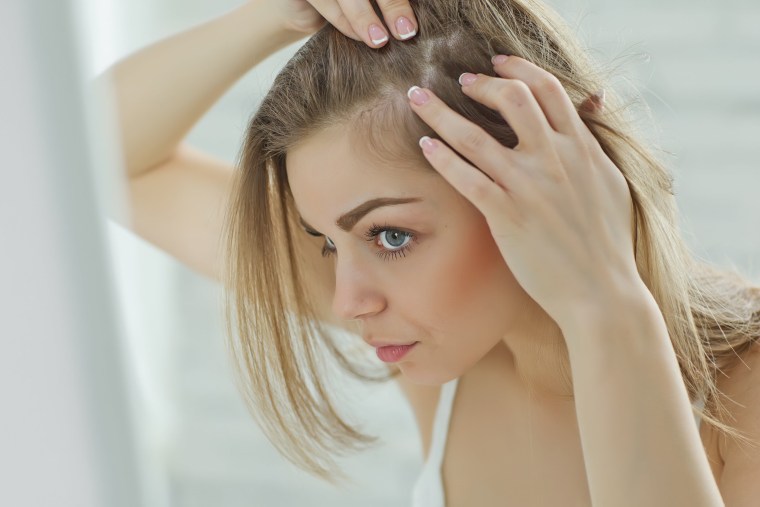
What the heck is the "no-poo" movement?
You've likely heard about this term in passing, but what exactly is it and is it OK for your hair? "No-poo refers to no shampoo in the shower, or rather, washing the hair with just water or shampoo alternatives like apple cider vinegar and baking soda," Zeichner says.
Depending on how extreme you want to go, you can "no-poo" by washing with conditioner or other shampoo alternatives, like corn starch or baking soda. The no-poo movement hit its height a few years ago, but it's not a new concept. Like most beauty trends, the no-poo movement isn't for everyone.
"For someone with healthy hair and low scalp-oil production, skipping shampoo is not really an issue. However, if you have an oily scalp, dandruff or psoriasis in the scalp, you may need to use shampoos to effectively remove oil and flakes," Zeichner says.
Shampoo alternatives like baking soda are great at removing dirt and oil, and apple cider vinegar has antimicrobial properties, but Zeichner cautions against using them too often. Baking soda is extremely alkaline and apple cider vinegar is very acidic, so both ingredients can cause irritation. "Mixing the two together may be able to provide a neutral pH product, but it still may actually be harsher on the scalp and the hair than traditionally formulated shampoos," he says.
This strategy can reduce the damage caused by frequent shampooing, but not by much, according to Romanowski: "This is because it is not the detergents that cause most of the damage, but the water exposure. The more often you get your hair wet, the more damage you'll experience."
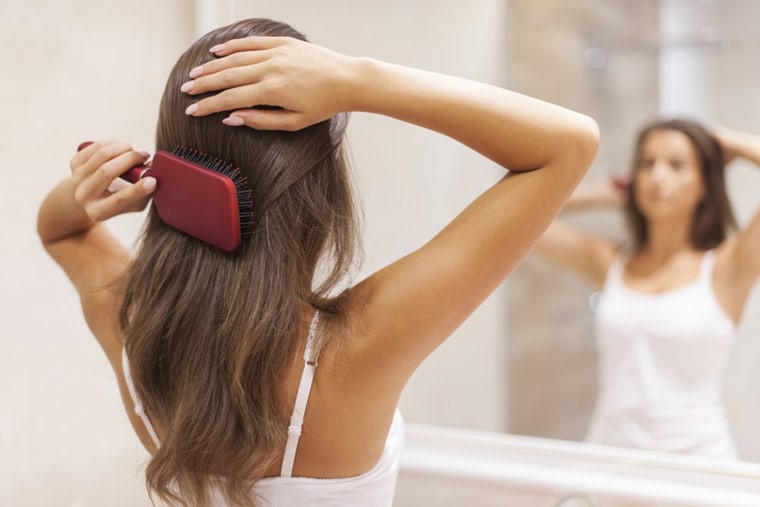
What about co-washing?
If you’re not into no-poo shampoo alternatives like baking soda, there’s always the co-washing method, which curly-haired gals and natural hair experts have long sworn by.
With co-washing, you’re basically foregoing shampoo and washing with conditioner instead, and the moisturizing method lets you reap all the nourishing benefits of a conditioner without the harsh effects of some shampoos that strip hair of its natural oils. Naturally, many women will miss that squeaky-clean feeling that comes with shampooing, so co-washing isn’t for everyone. It can, however, save you time in the shower.
